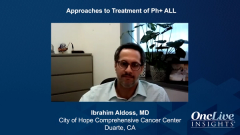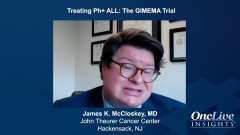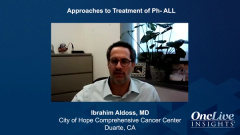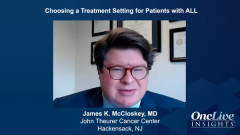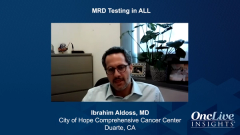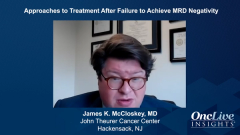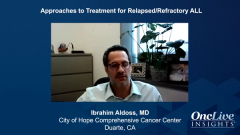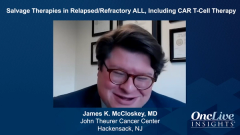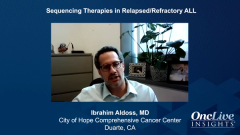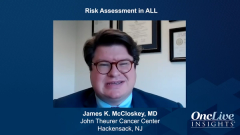
Treating Ph+ ALL: The GIMEMA Trial
A review of the design, results, and practical implications of the GIMEMA Trial.
Episodes in this series

Ibrahim Aldoss, MD: Dr. McCloskey, since you commented on the ponatinib and blinatumomab studies, do you want to talk more also about the GIMEMA study with dasatinib followed by blinatumomab, briefly?
James K. McCloskey, MD: Yes. This was a phase 2 study early clinical trial of approximately 60 patients that looked at patients who received dasatinib and steroids followed by consolidation and with BLINCYTO® (blinatumomab), again, sparing patients a lot of chemotherapy that we might otherwise use, even if you're using a chemotherapy-reduced regimen. And again, early nonrandomized, but impressive response rates (RR) with a median overall survival (OS) of close to 90% and disease-free survival (DFS) that was 79%. And within that, we could see that the patients who achieved an MRD [minimal residual response] negative response had a really substantially prolonged disease free-survival, indicating to us that if we look at MRD as a surrogate, that we really might be able to select those patients who need transplant, spare patients a lot of chemotherapy by treating them upfront with BLINCYTO®, and then limit transplant. Especially if we think about younger patients and the issues around fertility and the long-term consequences of some of these therapies, it would be great to reduce the exposure to chemotherapy and transplant.
Ibrahim Aldoss, MD: Definitely. This study generated a lot of interest using this chemotherapy-free regimen. Chemotherapy is always a challenge in older patients since the chromosome-positive is an older patient disease, so this is the future treatment for this disease. And one more interesting thing with this study is they have seen some MRDs increasing during the dasatinib therapy during induction and developing new mutations in the APL kinase. And with the blinatumomab therapy they’re able to get rid of these mutations and the MRD in these cases, so it can overcome some of the limits of the Philadelphia chromosome-positive treatment with TKI[tyrosine kinase inhibitors].
Transcript Edited for Clarity


